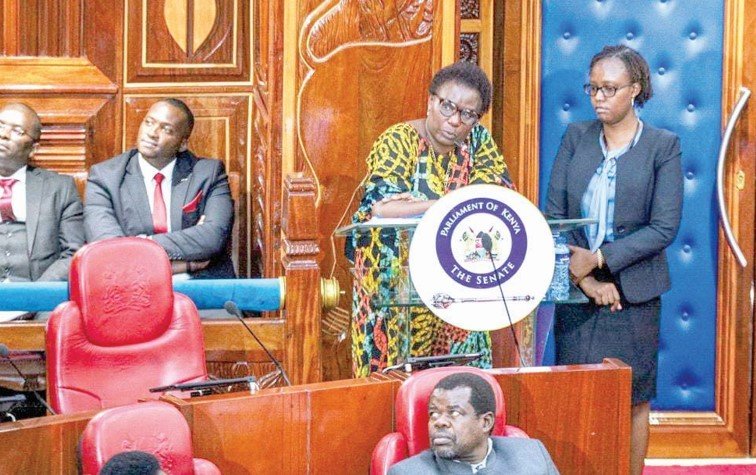Impeachments must be treated with solemnity

Proceedings against embattled Meru Governor Kawira Mwangaza, which started at the Senate yesterday, have raised important questions about what infringements ought to be considered impeachable. This will be important going forward because there is a risk of watering down impeachment proceedings to the point where they are treated as an extension of grassroots political duels.
The governor is facing three accusations; revoking the appointment of an officer identified as CPA Virginia Kawira Miriti, failing to appoint chairpersons for various boards, including the revenue board, and dismissing four officials, namely John Ntoiti, Paul Mwaki, Kenneth Kimathi and Joseph Mberia. The third charge has been brought forward from the second impeachment trial, which the Senate dismissed, meaning that if the same rules were to apply, it ought to be thrown out ab initial.
In the first instance, there have been allegations that the affected officer was holding two public service jobs, which is contrary to the law. This necessitates another question that the Senate must consider: Did the governor break the law in sacking the affected officer?
Regarding the second charge, it has been an open secret that the positions for various boards have not been filled because the governor and the Members of the Meru County Assembly failed to agree on the nominees. As a result of the stand-off, the people of Meru have had to make do without the services of these critical offices. It is, therefore, debatable whether only one party in the dispute ought to be held solely responsible for the stand-off. And if this were to be the case, does it form sufficient ground for impeachment?
The case has been made in the past for a law to raise the bar for impeachment trials so that when such cases are brought before the Senate for determination, they help the country to move forward. It is also important that the floor of the Senate is not used for forum shopping and political bickering that is neither beneficial to the larger cause of strengthening devolution nor entrenching good governance.
While at it, there ought to be provisions on how many times attempts can be made to impeach a governor within one term. This is the third time, in two years, that the MCAs have sought to impeach Mwangaza, a scenario complicated by the fact that she is a woman and an independent, meaning that she has no fallback on either gender or party support.
This is not to mean that she has not committed sins of omission or commission, probably both. There must be a reason why the MCAs have been ganging up against her, even if the real issue remains unspoken or publicly acknowledged. As such, the governor ought to seek wise counsel and address the underlying issues that are giving her the political migraines she is having to endure, and which are hurting service delivery for the people of Meru. Both she and the MCAs ought to vocalise the real problem affecting their relationship because they are not helping their respective causes by playing their cards close to their chests while presenting red herrings to the Senate.
Leaders face two types of problems: Technical and adaptive. Technical problems are easy to solve. If there is a dispute about the hiring or firing of an officer, that is a technical problem. It can be resolved procedurally. Adaptive problems are more complex and, therefore, difficult to resolve, and this, clearly, is what is ailing the combatants from Meru. That is why they must gather the courage to give a name and put a finger to what they are actually fighting about because clearly, the appointments are just the symptoms, not the disease.
However, if it becomes evident that the two parties are irreparably irreconcilable, then it is imperative that national government puts in motion the process of dissolving the county government so that voters can get a second chance to reconstitute the leadership team.
Mr Mbugua is the Editor-in-Chief of the Nairobi Law Monthly and Nairobi Business Monthly-















